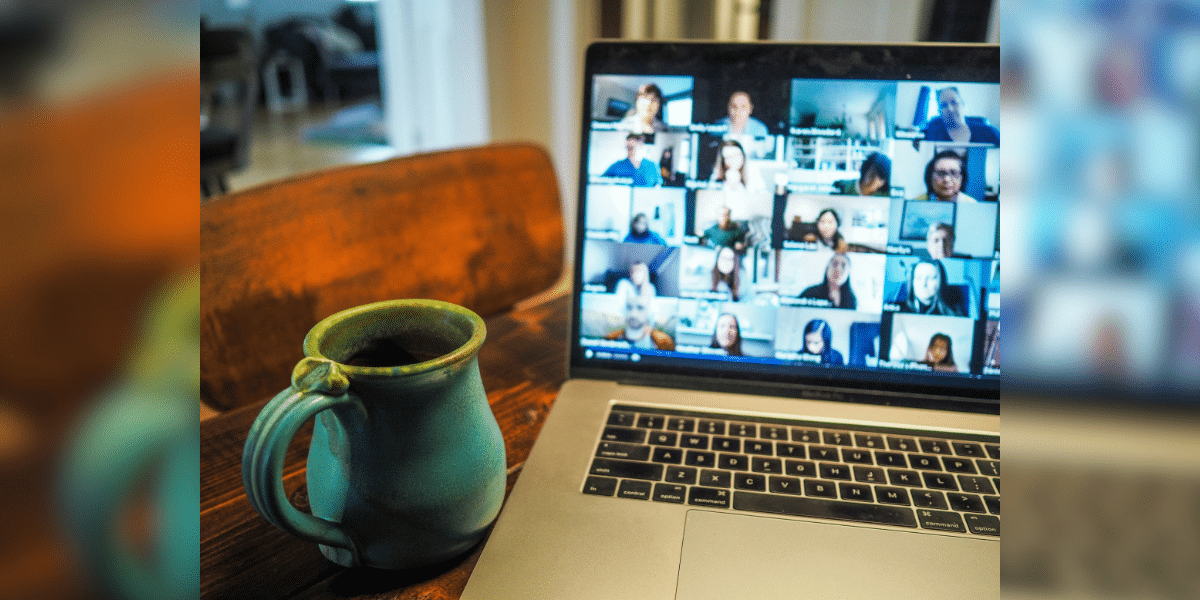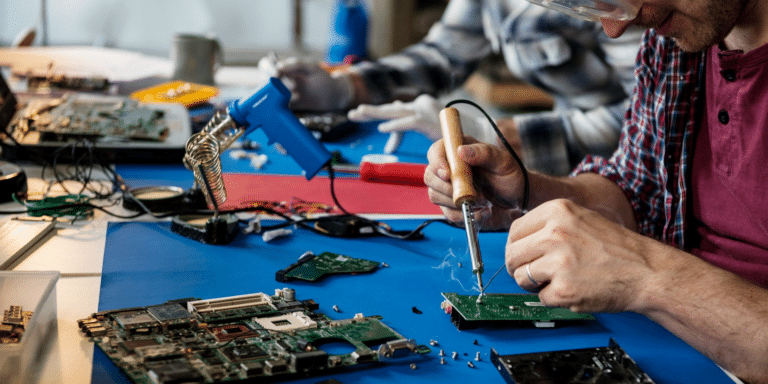Image commercially licensed from: Unsplash
The world of work is undergoing a seismic shift. The traditional office environment, with its nine-to-five schedule, is making way for a more flexible, digital-first approach. Remote work, once a rare perk, has become a key feature of modern business. This article explores the multifaceted landscape of remote work and how it’s shaping the future of workplaces. The transformation is profound and pervasive, from how we collaborate to the tools we use.
Redefining the Workspace
Gone are the days when a desk in an office was the default workspace. The rise of remote work has ushered in a new era where the ‘office’ can be anywhere – from a home study to a coffee shop or even a beach in Bali. This shift is not just about physical space; it’s about a mindset change. Companies are now recognizing that productivity isn’t tied to a specific location. This flexibility allows employees to create a work environment that suits their personal preferences and lifestyles, leading to increased job satisfaction and productivity.
Embracing Technological Tools and Platforms
The backbone of successful remote work is technology. From video conferencing tools to project management software, technology bridges the gap between dispersed teams. It ensures that collaboration and communication flow as smoothly as they would in a traditional office setting. Companies are investing in these technologies not only to facilitate remote work but also as part of their commitment to sustainable business practices. By reducing the need for physical office spaces and daily commutes, these digital tools are helping companies reduce their carbon footprint.
The Evolution of Team Dynamics and Collaboration
Remote work is changing the way teams interact and collaborate. Without the possibility of impromptu meetings or quick desk-side chats, teams are evolving new ways to work together effectively. This evolution has led to more structured and intentional communication. Regular video meetings, clear and concise email communication, and collaborative digital tools are becoming the norm. These changes are fostering a culture where every team member can contribute regardless of their location, ultimately leading to more diverse and inclusive workplaces.
The Rise of Remote Accounting Positions
Accounting, traditionally seen as an in-office job, is undergoing a significant transformation. Remote accounting positions are becoming increasingly common, reshaping the finance sector. This shift is driven by realizing that accounting tasks, from bookkeeping to financial analysis, can be effectively handled anywhere with secure internet access. Remote work in accounting not only offers flexibility for employees but also expands the talent pool for companies, allowing them to hire the best accountants regardless of geographic location.
The transition to remote accounting positions also aligns with the broader trend toward digital financial management. With cloud-based accounting software and encrypted data transmission, remote accountants can manage financial records, perform audits, and provide strategic financial planning with the same efficiency and security as they would in a traditional office. This shift is not just about adapting to the current work culture but is a strategic move toward creating more resilient and adaptable financial operations.
The Impact on Employee Well-being and Work-Life Balance
One of the most significant impacts of the shift to remote work is on team member well-being and work-life balance. Remote work offers employees flexibility to manage their professional responsibilities alongside personal commitments, leading to a better balance. It eliminates long commutes, giving employees more time for leisure, family, or personal projects. However, this new way of working also brings challenges. Maintaining a clear boundary between work and personal life can be difficult when both occur in the same space. Companies are therefore focusing on team member well-being programs and encouraging practices like setting clear work hours and taking regular breaks to ensure remote working doesn’t lead to burnout.
Preparing for a Hybrid Future
As we look to the future, it’s becoming clear that the workplace will likely be a hybrid of remote and in-office work. This model aims to combine the flexibility and autonomy of remote work with the collaboration and community aspects of traditional office work. Companies are experimenting with various configurations to find the balance that works best for their teams. This hybrid model requires a rethinking of management practices, communication strategies, and workspace designs. Leaders are learning to manage distributed teams effectively while employees are adapting to a more fluid work environment. The hybrid model promises to bring the best of both worlds, offering flexibility and a sense of community and is set to define the future of work.
The shift towards remote work and the rise of digital workplaces are not just temporary responses to recent global events but are part of a larger, ongoing transformation in the world of work. From the emergence of remote accounting positions to the focus on team member well-being, these changes are reshaping how we think about work, collaboration, and workplace culture. As we move forward, it’s clear that flexibility, technology, and adaptability will be the cornerstones of successful and resilient organizations.
Published by: Aly Cinco








